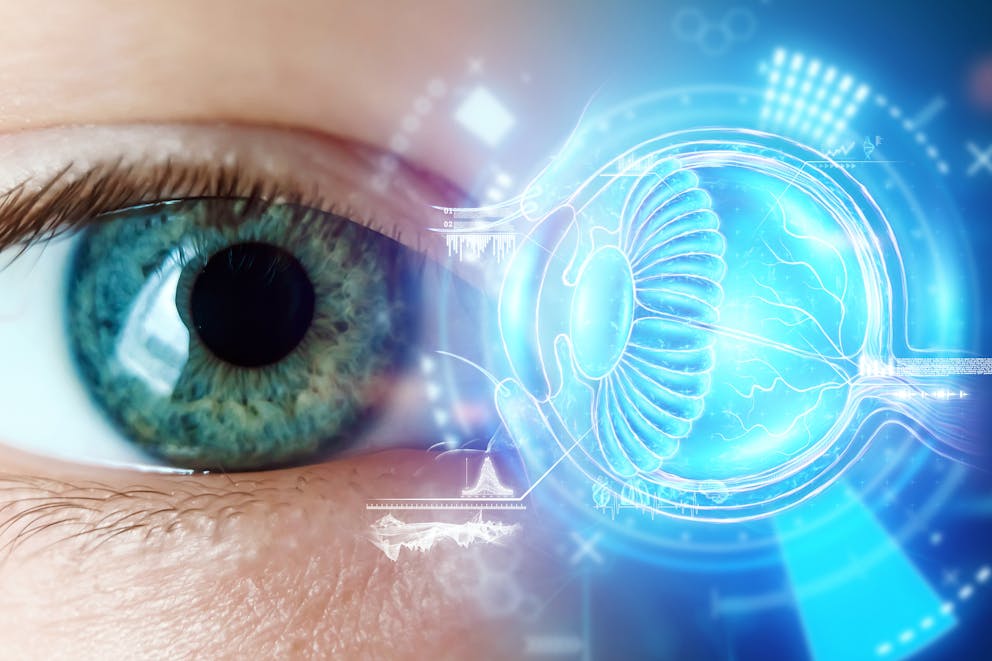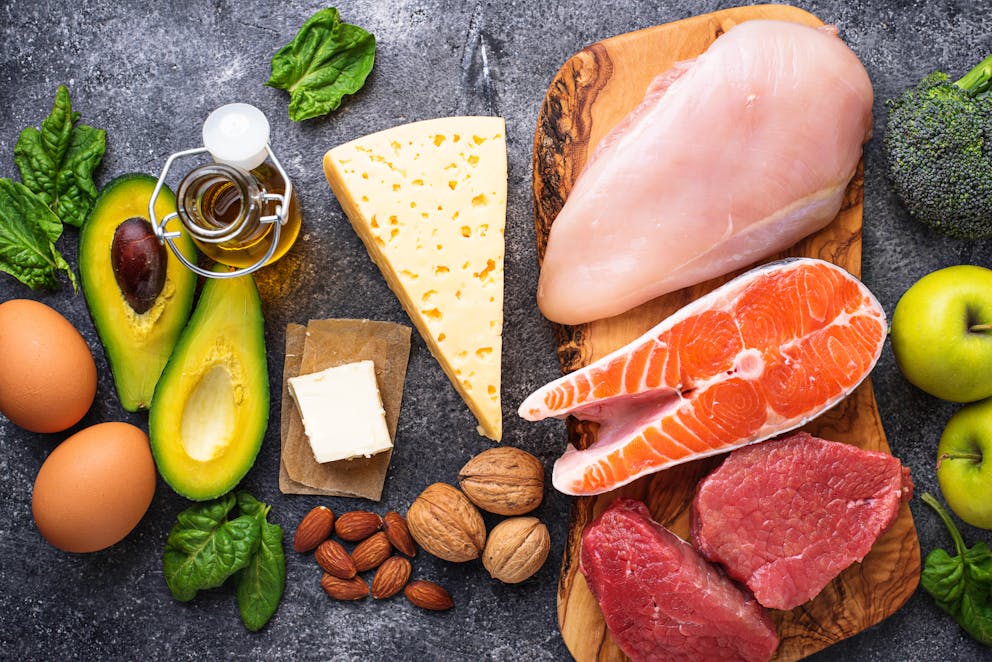Fish Is Brain and Eye Food
While many people enjoy eating fish, not many understand just how crucial such a meal can be for your health. Specifically, those concerned with their brain and vision should discover the nutritional value of fish in a health-conscious diet.
Learn about the nutritional value of fish and how omega-3s can improve your well-being while supporting brain and eye health.
The Essential Role of Omega-3s in Brain Health
Omega-3 fatty acids, particularly DHA and EPA, are crucial nutrients for your brain. Omega-3s aren't merely beneficial but indispensable for nurturing and enhancing mental faculties like recollection, concentration, and emotional balance.
Understanding DHA's Impact on Cognitive Functions
DHA acts as a cornerstone in brain health. It forms the building blocks of the brain itself, influencing how well we remember things, our ability to concentrate, and even our emotional stability.
Studies show that adequate levels of DHA can improve learning abilities, suggesting its significance cannot be overstated.
This fat isn't just sitting there; it's actively involved in creating cell membranes around neurons—think of it as insulation on wires that helps signals travel faster and more efficiently across your brain.
The Functional Benefits of EPA on the Brain
EPA supports cognitive health from another angle—it plays a crucial role beyond structure by fostering an environment conducive to mental functioning.
While less direct than DHA’s structural benefits, research highlights the EPA’s importance in modulating mood disorders, which can indirectly impact cognitive function through improved mental well-being.

Nutritional Powerhouses for Brain and Eye Health
Fish, especially those high in omega-3 fatty acids like DHA and EPA, resemble nature's brain food. DHA and EPA, abundant in certain fish, are essential for mental sharpness and keeping our vision clear.
Top Sources of DHA
Not all fish are equal when it comes to boosting brain and eye health. Salmon, mackerel, and sardines lead the pack as they're rich in DHA. Including these fish in your diet can help enhance memory and focus and prevent age-related vision decline.
Exploring Vegan Options for Omega-3s
Vegans needn't miss out on the benefits of omega-3s for their brains and eyes. Microalgae supplements offer a plant-based source of DHA that supports cognitive function without compromising dietary principles.
Here's where vegans can get their omega-3 fix.
The Synergy of Seafood with Zinc and Iodine
Seafood offers a unique synergy of essential nutrients like zinc and iodine, both crucial for maintaining optimal health, especially thyroid function. Zinc plays a role in thyroid hormone production and regulation, while iodine is a fundamental component of thyroid hormones.
Understanding the combined benefits of these nutrients in seafood can provide valuable insights into supporting thyroid health through dietary choices.
The Importance of Cofactors in Omega-3 Absorption
Munching on seafood tickles your taste buds and supercharges your noggin with omega-3 fats. Zinc and iodine are two essential cofactors that crank up the volume of omega-3’s benefits.
Zinc plays a pivotal role in how your body uses these fatty acids. Converting these fatty acids into forms the brain can readily employ ensures mental acuity is maintained. Zinc is the key that unlocks omega-3s' full potential, ensuring they're not just hanging around but actively contributing to your cognitive functions.
Regarding thyroid health, iodine is crucial for metabolism and brain function. Zinc acts as a catalyst, optimizing omega-3s for peak brain performance.
At the same time, iodine plays a pivotal role in the proper synthesis of thyroid hormones, thereby indirectly nurturing cognitive functions through energy regulation at the cellular level.
Vision Enhancement Through Omega-3 Fatty Acids
DHA, a type of omega-3 fatty acid, is pivotal in preserving and boosting our eyesight. This isn't just about keeping your eyes healthy; it's about giving them the nutritional support they need to see the world in high definition.
The Role of DHA in Visual Development
DHA contributes significantly to the structural integrity of the retina, where all our visual processing starts. Think of your retina as a camera sensor, and DHA helps keep this sensor sharp and clear.
Studies have shown that adequate intake of DHA is linked with improved vision understanding, particularly in conditions with diminished light.
This nutrient isn't just crucial during adulthood but plays a vital role from infancy through aging. Incorporating a balanced diet early on paves the way for enhanced vision growth and enduring ocular wellness.
Zinc's Crucial Role in Eye Health
Zinc acts almost like a gatekeeper for vitamin A metabolism, which is critical for creating melanin - giving color to your eyes and protecting them from UV damage. This process could falter without enough zinc, making you more susceptible to poor night vision.
It turns out seafood rich in omega-3s often comes packed with zinc, too – offering double protection against declining sight. Getting enough zinc through diet or supplements can ensure vitamin A gets where it needs to go, safeguarding your ability to see well into later life.
Navigating Dietary Choices for Optimal Brain and Eye Health
Navigating dietary choices for optimal brain and eye health involves selecting foods rich in nutrients like omega-3 fatty acids, antioxidants, and vitamins crucial for cognitive function and vision.
By incorporating fatty fish, leafy greens, berries, and nuts into your diet, you can provide essential nutrients that support brain function and protect against age-related eye conditions.
Understanding the impact of dietary choices on brain and eye health can empower individuals to make informed decisions to maintain cognitive sharpness and visual acuity throughout life.

Incorporating Fish into Your Diet
Diving into a diet abundant with these underwater wonders, like salmon and mackerel, elevates your brainpower and enhances your eyesight.
Omega-3 fatty acids are essential for constructing brain cell barriers and play a pivotal part in maintaining the health of your retina.
But it's not just about throwing fish onto your plate. Variety is key. Mixing up your fish intake ensures you get both DHA and EPA types of omega-3s, which is essential for mental clarity and reducing inflammation that could weaken your vision.
To ensure you're getting the right omega-3 intake without breaking the bank, consider adding flaxseeds or walnuts to salads for an extra crunch of these vital nutrients when seafood isn't on the menu.
Vegan Alternatives for Omega-3s
If you’re navigating a plant-based diet but still want the cognitive benefits from omega-3s, don’t fret. Microalgae supplements are a fantastic vegan source of DHA. They directly provide what fish consume to become rich in these fatty acids.
For everyday eating, chia seeds, hemp seeds, and walnuts offer ALA (alpha-linolenic acid), which our bodies can convert into EPA and DHA, albeit less efficiently than consuming them directly from animal sources or algae-based supplements.
Unlocking the Benefits of Fish Consumption and Exploring its Impact on Cholesterol Levels
Fish consumption offers many benefits beyond cognitive health and eyesight, including potential effects on cholesterol levels. While the exact mechanism is still under investigation, some studies suggest that fish oil may help lower cholesterol levels.
Incorporating fish into your diet supports brain function and vision and contributes to overall cardiovascular health, potentially aiding in cholesterol management.
However, it's essential to consult with a healthcare professional for personalized guidance on optimizing your cholesterol levels."
Conclusion
Incorporating fish into your diet provides significant benefits for both brain and eye health due to its rich omega-3 content, particularly DHA and EPA.
These essential fatty acids support cognitive functions, enhance memory, and improve vision by maintaining the structural integrity of brain cells and the retina.
Additionally, the synergy of omega-3s with nutrients like zinc and iodine further supports overall cognitive and visual well-being. Whether through seafood or vegan sources like microalgae, ensuring adequate omega-3 intake is crucial for maintaining optimal health and preventing age-related decline.
Previous blog
How Many Calories on Keto Simple FormulaTags

Popular
08/21/2024
35.9K views
05/22/2024
34K views
08/19/2024
199.1K views
03/18/2024
11/21/2022




